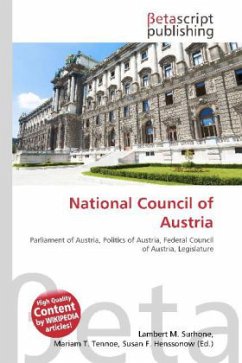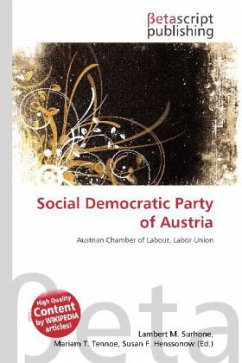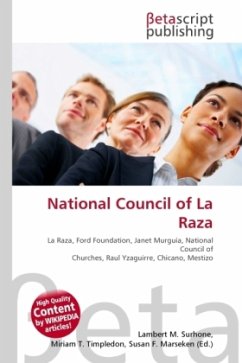Please note that the content of this book primarily consists of articles available from Wikipedia or other free sources online. The National Council is where Austria''s federal legislative authority is concentrated; for a bill to become federal law, it must be resolved upon by this chamber. Bills passed by the National Council are sent to the Federal Council for corroboration. If the Federal Council approves of the bill or simply does nothing for eight weeks, the bill has succeeded. If the Federal Council vetoes the bill, the National Council may still force it into law by essentially just passing it again; a National Council resolution overruling a Federal Council objection merely has to meet a higher quorum than a regular resolution. In other words, the Federal Council does not have any real power to prevent adoption of legislation, the National Council being trivially able to override it. There are three exceptions to this rule: bills amending constitutional law, bills curtailing the rights of Austria''s member states, and bills pertaining to the organization of the legislature itself cannot be forced into law against Federal Council opposition.
Bitte wählen Sie Ihr Anliegen aus.
Rechnungen
Retourenschein anfordern
Bestellstatus
Storno








